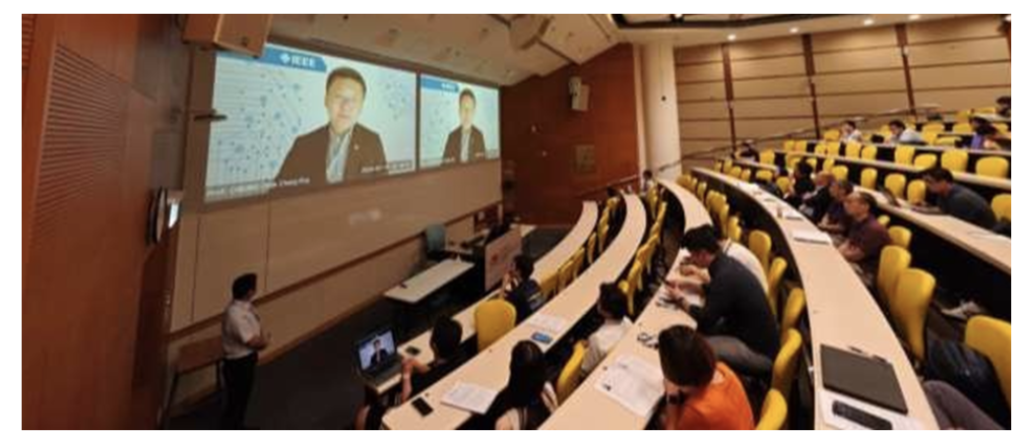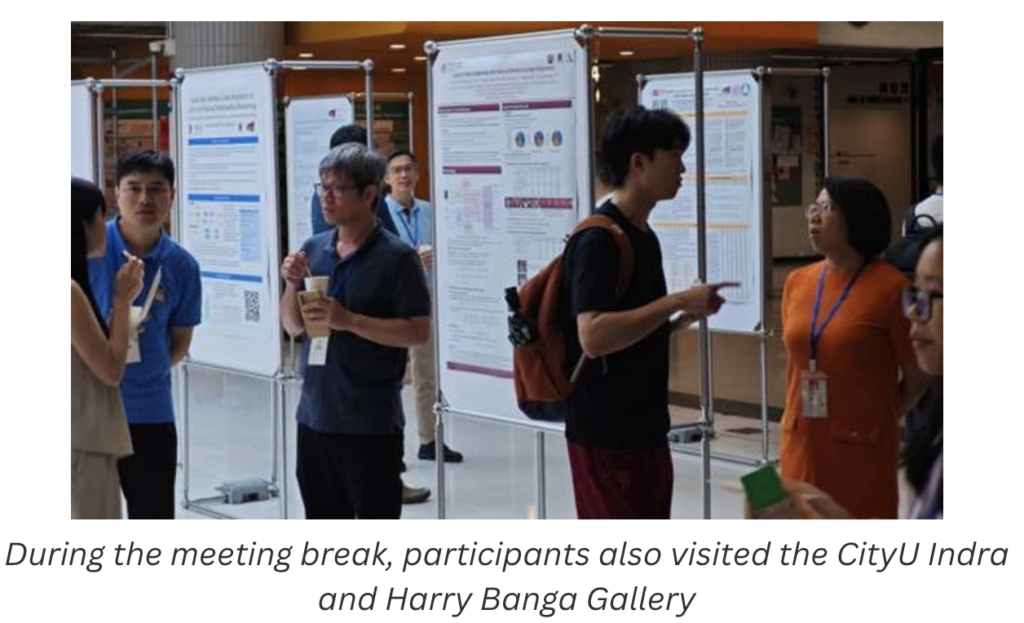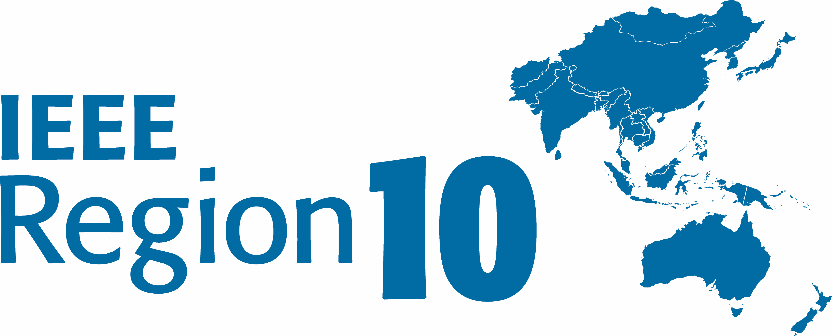By Haoliang Li, Hong Kong Section Newsletter Chair
The 2024 Hong Kong, Guangzhou, and Taipei Joint Workshop on Artificial Intelligence, Communications, and Information Theory (AICIT 2024) took place at City University of Hong Kong from 20-21 July 2024. Co-organized by the Department of Computer Science at CityUHK and the IEEE Information Theory Society’s Hong Kong, Guangzhou, and Taipei Chapters, the workshop provided a platform for AI and IT scholars to exchange ideas, foster collaboration, and strengthen cross-strait academic relationships.
The event, chaired by Prof. Raymond Wai Ho Yeung of the Chinese University of Hong Kong and Prof. Xiaohua Jia of CityUHK, attracted over 70 participants, including students and prominent researchers. The workshop was supported by Huawei Technology Co., Ltd., and the Institute of Network Coding (INC) at the Chinese University of Hong Kong. Among the attendees were Prof. Baoming Bai, Chairman of the Chinese Institute of Electronics Information Theory Chapter, and Vice Chairman Prof. Xiao Ma.
AICIT 2024 featured 12 insightful talks and 14 student posters covering a range of topics, from information theory and coding theory to wireless communications and machine learning. The General Chair, Prof. Linqi Song from CityUHK, welcomed participants, while Prof. Li Chen from the IEEE Information Theory Society Guangzhou Chapter and Prof. Chia-Han Lee from the Taipei Chapter shared opening remarks, extending best wishes for the event’s success.
Keynote Highlights
The first day’s keynote speaker, Shannon Awardee Prof. Raymond W. Yeung, presented a talk on proving information inequalities using Gaussian elimination, a critical problem in information theory. He introduced a symbolic computation approach that simplifies linear programming in certain cases, making the process more efficient.



Other prominent talks included Prof. Cheuk Ting Li’s presentation on one-shot coding using Poisson processes and Dr. Qiaosheng Zhang’s exploration of information-directed sampling (IDS), a method balancing exploration and exploitation in machine learning. The day ended with a discussion on generative models in wireless communications by Prof. Chia-Han Lee from National Yang Ming Chiao Tung University.
A banquet was hosted to conclude the first day, where Prof. Baoming Bai gave a welcoming speech, encouraging further collaboration between researchers from Guangzhou, Hong Kong, and Taipei.
Day Two Sessions
On the second day, Prof. En-Hui Yang from the University of Waterloo delivered an online keynote on deep learning-based artificial intelligence and its integration with information theory. He shared valuable insights into Conditional Mutual Information (CMI) and its role in improving deep learning models.
Talks from Prof. Antoni B. Chan and Prof. Yu-Chih Huang covered topics such as explainable AI frameworks and the piecewise-stationary bandit problem. The day concluded with a presentation from Dr. Xueyan Niu on the strengths of Transformers in AI, and Prof. Qianqian Yang’s work on reducing transmitted information by using generative models.
AICIT 2024 successfully facilitated rich academic exchanges, paving the way for future collaborations and advancements in AI and information theory.



